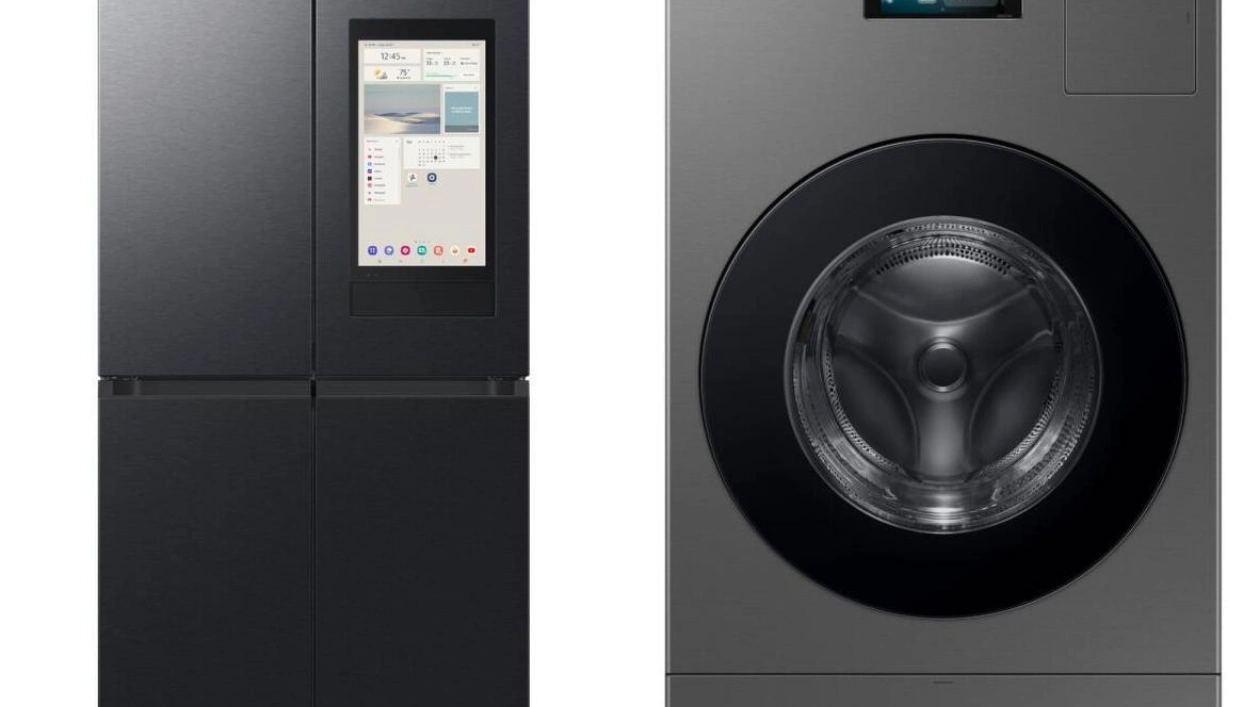The smart appliance market in the Middle East is experiencing significant growth, with forecasts indicating a market value of $6.96 billion in 2023, expected to surge to $20.74 billion by 2029, growing at a Compound Annual Growth Rate (CAGR) of 19 percent, according to recent research.
"This surge is fueled by rising disposable incomes, a tech-savvy populace, and heightened demand for advanced security systems, energy management solutions, and smart entertainment devices. As AI technology progresses and becomes more integrated into home appliances, it is anticipated to further propel market expansion," Guran Nakiboglu, Director and Head of the Home Appliances Division at Samsung Gulf Electronics, shared with Khaleej Times in an interview.
Nakiboglu emphasized that the home appliances sector is poised for substantial opportunities as it evolves, with smart home technology entering a new and exciting phase. "While premium AI-enabled appliances continue to offer unparalleled value and innovation, advancing technology and streamlined production are making these products more accessible to a wider range of discerning consumers. Consequently, there is robust demand from a broader consumer base that values quality and is prepared to upgrade their homes," he noted.
As the market matures, there is a significant opportunity to attract new consumers to the realm of intelligent lifestyles. "The competitive environment is particularly fierce, with key players consistently pushing the boundaries of innovation in AI-powered solutions. Samsung has strengthened its position through its SmartThings ecosystem, which facilitates seamless integration of multiple devices and appliances," Nakiboglu explained.
AI trends are rapidly reshaping the home appliances sector, with companies like Samsung at the forefront of integrating intelligent features into everyday household devices. "Our smart refrigerators now feature AI Vision Inside technology that can identify and monitor food items, while the AI Family Hub+ acts as a central command center for all food-related activities. The integration extends beyond basic automation – our AI-enabled washing machines can now make sophisticated decisions about wash cycles based on fabric types and load sizes," Nakiboglu detailed.
"We are also witnessing a fundamental shift from standalone appliances to interconnected, learning systems like SmartThings that adapt to user preferences and anticipate household needs, all managed through user-friendly mobile apps that effortlessly connect and coordinate multiple appliances," he added.
AI has emerged as a powerful force for sustainability in home appliances, fundamentally altering how we consume energy and maintain our devices. "The technology enables smart energy management through features that automatically optimize consumption patterns and activate energy-saving modes at optimal times. For example, Samsung’s “Save Energy While Away” function intelligently detects when homes are vacant and prompts residents to adjust device settings accordingly," Nakiboglu said.
Additionally, smart refrigerators monitor and adjust cooling intensities based on actual usage patterns. "Beyond energy savings, AI extends the lifespan of appliances through predictive maintenance, reducing waste from premature replacements. These AI-driven optimizations not only lower energy bills but also contribute to reducing the overall carbon footprint of households," Nakiboglu highlighted.
The future of AI-driven home appliances is poised toward a more integrated and intelligent home environment. "By 2025, we can anticipate AI capabilities deeply embedded in everyday appliances, offering unprecedented levels of personalization and automation. The integration of AI with emerging technologies like 5G will enhance device connectivity and functionality, while advanced features like our 3D Map View will revolutionize how we monitor and control our home environments," Nakiboglu predicted.
In markets like the UAE, these advancements align with broader smart city initiatives, suggesting a future where individual smart homes contribute to larger urban intelligence networks, according to Nakiboglu. "The industry’s focus on sustainability and energy efficiency will intensify, with AI playing a crucial role in managing resource consumption and environmental impact," he concluded.
Source link: https://www.khaleejtimes.com






